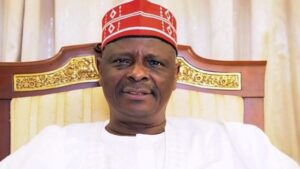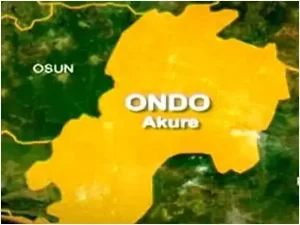
In his article “The Pavilion of Blackmail”, Ibraheem Abdullateef, Senior Special Assistant on Communication to the Kwara State Governor, launched a veiled political attack on Senator Saliu Mustapha over the construction of the Sulu-Gambari Pavilion—a federal government initiative facilitated through the Federal Ministry of Agriculture and Food Security. While Abdullateef attempts to justify his criticism under the guise of due process and procedural correctness, the underlying tone of the piece reveals more of a turf war than a genuine concern for governance.
Let it be stated unequivocally: Senator Saliu Mustapha is a bona fide member of the All Progressives Congress (APC), the same party as Governor AbdulRahman AbdulRazaq. Therefore, it begs the question—why is the current administration treating him like an opposition figure? Is internal party rivalry now more important than collective progress?
The Pavilion, which is a federally funded project, is not out of line with standard practice. Across Nigeria, many federal projects proceed with urgency due to budgetary deadlines or logistical timing, and do not always wait for every state-level clearance. The same Kwara State Government that has embraced other federal projects with minimal fuss is now suddenly hypersensitive about protocol—because this one was initiated by a fellow APC leader outside the governor’s immediate political orbit.
Accusing Senator Mustapha of “boycotting state authorities” is a claim that lacks depth and fairness. Bureaucratic delays or unintentional gaps in protocol are not uncommon in intergovernmental projects. But in this case, rather than seek clarification or collaboration, the state apparatus has gone for confrontation, raising suspicion of political vendetta rather than professional concern.
Even the Kwara Geographic Information Service (KWGIS) appears to have been roped into this drama. While it is within its remit to enforce compliance, the tone, timing, and public posturing of the agency suggest that it is being used more as a political tool than a regulatory body. One cannot help but notice the silence of KWGIS on other questionable structures across the state. Why the sudden burst of energy only for a Pavilion that is receiving wide public support?
Equally disturbing is the attempt to downplay the significance of the Pavilion to the Ilorin Durbar celebration. To suggest that “Durbar will go on without it” is both dismissive and disrespectful to the cultural and historical heritage of the Ilorin Emirate. The Durbar is more than a show; it is a festival of identity, heritage, and communal pride. Enhancing its infrastructure should be celebrated, not ridiculed.
The real issue, it seems, is not due process—but due recognition. Senator Mustapha’s growing popularity and developmental stride, even as a legislator, appears to unsettle those who fear a shift in political dominance. But should governance be reduced to a chess game where progress is sacrificed for control?
Kwara State deserves leaders who rise above personal rivalries and petty politics. The people want results, not drama. They want roads, jobs, and infrastructure—not media fights and internal sabotage. If the State Government had genuine concerns about the Pavilion, it could have engaged the Senator’s office privately, professionally, and productively.
In conclusion, Senator Mustapha is not above the law—but neither should he be below dignity. The Pavilion project deserves support and constructive oversight, not political brickbats. Kwara must rise above internal wrangling and embrace collaboration for the sake of its people.
Let the Pavilion stand—not just as a structure—but as a symbol of unity, progress, and shared heritage. And let political maturity guide our public discourse from this moment forward.




![[PHOTOS] Arewa Offa, Mustapha Amidat Concludes Skill Acquisition, Exhibition Programme](https://newsbulletin.com.ng/wp-content/uploads/2025/09/IMG-20250920-WA0011-300x300.jpg)


